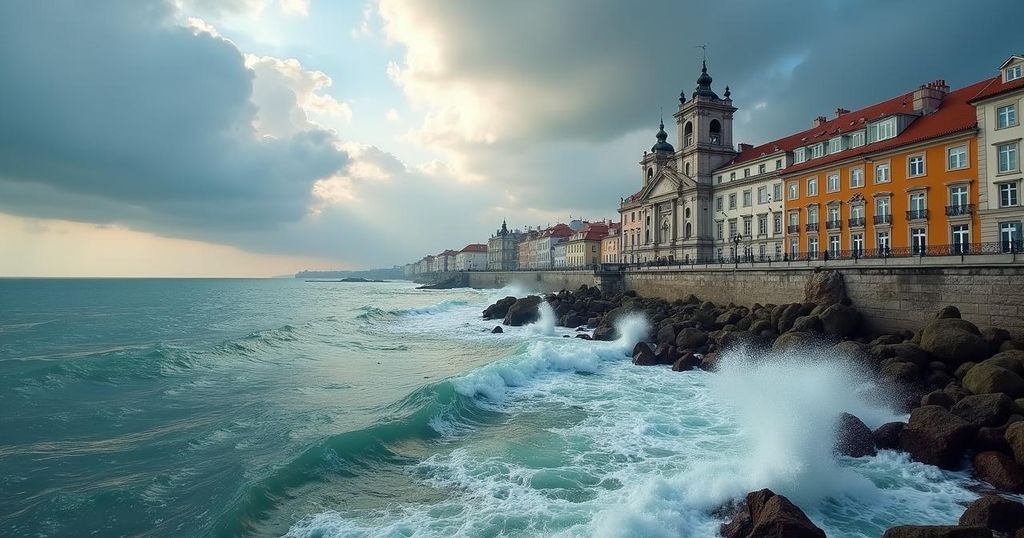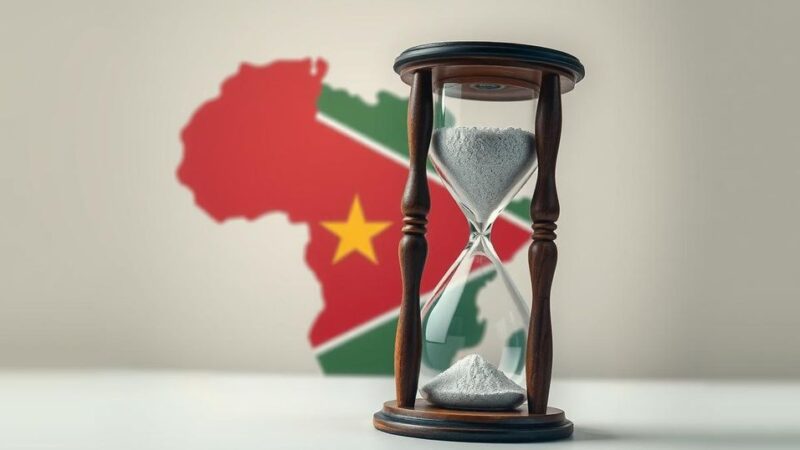On November 1, 1755, a catastrophic earthquake struck Lisbon, Portugal, resulting in an estimated 60,000 deaths and the destruction of numerous structures, particularly during All Saints’ Day when many were attending mass. The event triggered a tsunami, with devastating waves impacting locations as far as the Caribbean, altering societal perceptions of disasters and becoming a lasting historical reference in European history.
The 1755 Lisbon earthquake was a catastrophic event that occurred on November 1, 1755, profoundly affecting the port city of Lisbon, Portugal. The earthquake resulted in significant destruction, claiming the lives of approximately 60,000 individuals. It caused extensive damage to public structures and led to the collapse of around 12,000 buildings. The calamity struck during All Saints’ Day, a religious observance that found many inhabitants attending mass; the seismic event caused numerous churches to collapse, resulting in considerable casualties among worshippers. Modern geological studies reveal that the earthquake originated from fault movements along the tectonic plate boundaries in the mid-Atlantic. The seismic activity caused a tsunami, generating waves that reached heights of approximately 20 feet (6 meters) in Lisbon and a remarkable 65 feet (20 meters) in Cádiz, Spain. Furthermore, the tsunami propagated to the Caribbean Island of Martinique, where it manifested in waves that climbed to 13 feet (4 meters) above mean sea level. Notably, areas as far as Algiers, roughly 685 miles (1,100 km) to the east, also reported damages attributed to the earthquake and the subsequent tsunami. The aftermath of the disaster saw fires ravaging Lisbon for nearly a week, contributing to the number of fatalities. The event not only left an indelible mark on Portuguese society but also became a pivotal moment in European history, influencing artistic and literary depictions over the following centuries, cementing its legacy as the “Great Lisbon Earthquake.”
The Lisbon earthquake of 1755 represents a significant historical and geological event that not only caused widespread devastation but also changed perceptions regarding natural disasters in Europe. The event occurred on a date of religious significance, All Saints’ Day, which resulted in a high concentration of people in churches, amplifying the tragedy. This earthquake was characterized by its intensity and the resulting tsunami that affected regions far beyond Portugal, illustrating the interconnectedness of global events. The scientific exploration of the earthquake’s origins has helped in understanding tectonic movements and the potential for similar disasters in other regions, while the social and political ramifications of the event prompted discussions on disaster preparedness and urban reconstruction. The event remains a focal point for studying the response of societies in the face of catastrophic events.
In summary, the 1755 Lisbon earthquake marked a pivotal moment in both Portuguese and European history. The disaster resulted in catastrophic loss of life and widespread destruction, further compounded by the tsunami and subsequent fires. The event prompted significant reflection on natural disasters within the context of urban planning, cultural representation, and social resilience, leading to reforms in disaster preparedness. Overall, the Great Lisbon Earthquake serves as a sobering reminder of the catastrophic potential of natural phenomena and the enduring impact such events have on collective memory and society’s development.
Original Source: www.britannica.com






